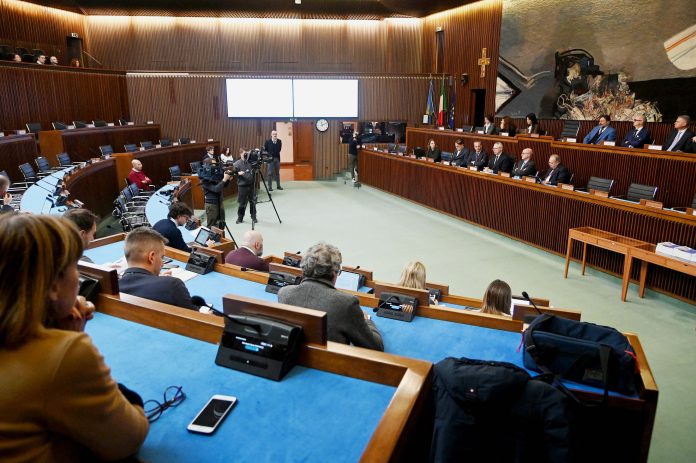by InTrieste
The Regional Council of Friuli Venezia Giulia concluded a productive year in 2024, marked by notable legislative actions and strategic investments. In its first full year of the XIII legislature, the Council approved 14 regional laws and allocated €7.4 billion to the region, a 12% increase over the previous year.
Regional Council President Mauro Bordin shared that while the quantity of legislation was significant, the focus remained on the quality of work and its impact on local communities. “The importance of legislative activity lies not just in numbers but in how well we serve the people of this region,” Bordin said during a recent press conference.
Throughout the year, the Regional Council held 56 plenary sessions and 113 meetings of permanent commissions. Among the year’s priorities was the passage of key bills that addressed healthcare, infrastructure, and local autonomy. In particular, the Council allocated €3.6 billion to healthcare, €1 billion to infrastructure, and €621 million to local autonomy. Additionally, €1.4 million in funding supported local associations, cultural projects, and sporting events across the region.
The year was also marked by several significant public initiatives, including the presentation of the Presepe di Grado to Pope Francis at the Vatican.
Legislative Focus and Regional Investments
A major aspect of the Council’s work in 2024 was ensuring that resources were allocated efficiently to key sectors. The healthcare budget received the largest allocation, followed by infrastructure and local development. Notably, the region’s legislative body also focused on improving policies related to gender equality and maritime industries, further emphasizing the role of the Council in responding to evolving regional needs.
Bordin emphasized that the Council was open to feedback from all political parties, pointing out that a collaborative approach across the aisle was essential for successful governance. Vice President Francesco Russo added that the Regional Council had worked to foster a productive environment, one that encouraged participation from opposition members, with an eye on practical solutions for families and communities.
Technology and Modernization in the Council
2024 also saw the modernization of the Regional Council’s infrastructure, including the introduction of a new voting system and technological updates to the Tessitori Room. The addition of a SPID service at the Council’s library was another step toward enhancing accessibility for citizens.
These changes are part of a broader effort to ensure the Council remains responsive to the needs of its constituents and can handle the growing demand for digital services.
Infrastructure and Future Plans
Looking ahead, Vice President Stefano Mazzolini emphasized that 2025 will bring continued focus on infrastructure and sustainable development. One of the key ongoing projects is the restoration of the Monte Croce Carnico mountain pass, which had been closed due to a landslide in December 2023. The Regional Government has prioritized repairs and is also exploring the possibility of building a tunnel to ensure better connectivity with neighboring regions.
The region is also looking to expand its cycling infrastructure and invest in renewable energy as part of a broader push for environmental sustainability. Mazzolini noted the importance of balancing growth with ecological responsibility, suggesting that investments in both sectors would contribute to the region’s long-term development.
Conclusion: A Year of Legislative Accomplishments and Future Growth
As the year concludes, the Regional Council remains focused on supporting economic growth, improving quality of life for residents, and positioning Friuli Venezia Giulia for future success. Bordin noted that while challenges remain, the region’s financial stability and legislative work have laid a strong foundation for the years ahead.
With plans in place for further development and investment in 2025, the Regional Council looks forward to continuing its work to meet the evolving needs of the region and its citizens.





























